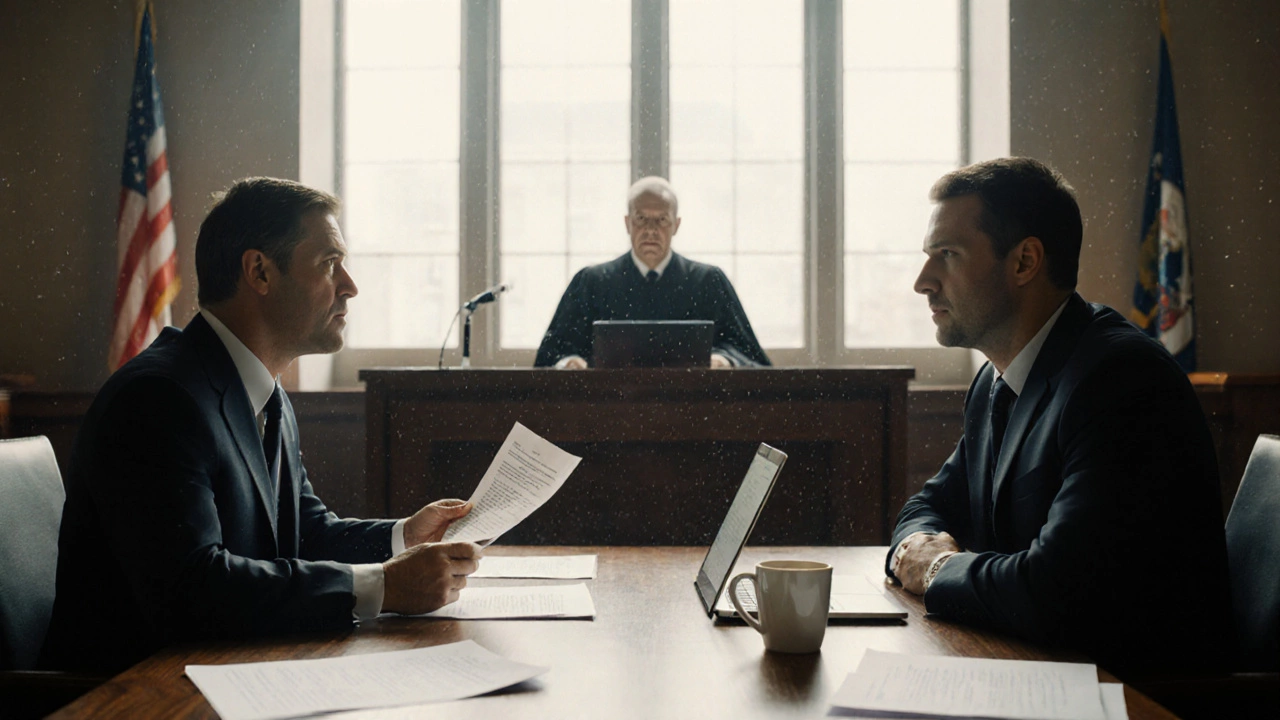Civil Lawsuit Basics: How to File, Prove, and Win Your Case
Got a dispute over money, property, or a contract? You’re probably looking at a civil lawsuit. Unlike criminal cases, a civil suit is all about getting a remedy – usually compensation or an order to do (or not do) something. Below you’ll find the core steps you need to start, prove, and push your case forward without getting lost in legal jargon.
Understanding What a Civil Lawsuit Involves
First, know the difference between a civil and a criminal case. In a civil lawsuit, you (the plaintiff) are asking the court to settle a private dispute. The other side is the defendant. The burden of proof is "preponderance of evidence" – meaning you just have to show it’s more likely than not that you’re right. That’s a lower bar than the "beyond a reasonable doubt" standard in criminal matters.
Typical civil matters include:
- Unpaid wages or salary disputes
- Property disputes like the 12‑year land rule or adverse possession
- Contract breaches
- Personal injury claims (pain and suffering, psychological injury, etc.)
- Consumer complaints under the Consumer Protection Act
Each of these categories follows a similar filing process, but the evidence you’ll need can differ. Knowing the type of claim helps you gather the right documents early.
Proven Strategies to Strengthen Your Civil Case
1. Collect solid evidence early. Court decisions hinge on what you can prove. Get copies of contracts, emails, payment receipts, photographs, and any written communication. For property disputes, land records, survey maps, and witness statements are gold.
2. File the suit correctly. In India, civil suits start with a plaint filed in the appropriate district court. Make sure you include a clear cause of action, the relief you’re seeking, and a concise statement of facts. Mistakes in the plaint can lead to delays or even dismissal.
3. Stay on top of procedural deadlines. After filing, the court issues a notice to the defendant. They have a limited time to respond. Missing any deadline can cost you the chance to present evidence.
4. Use expert testimony when needed. For technical matters – like property valuation or medical injury – an expert can turn a weak point into a strong one. Their reports should be clear and directly tied to the issues the court will consider.
5. Keep the focus on the burden of proof. Remember, you just need to show it’s more likely you’re right. Highlight the strongest pieces of evidence first, and be ready to refute any counter‑claims the defendant brings.
Need more detail? Check out some of our popular articles that dive deeper into specific civil topics:
- Civil Cases: How to Prove Your Side and Win in Court – step‑by‑step proof tactics.
- Employer Not Paying Salary in India: Rights, Legal Steps & Solutions – a guide for wage disputes.
- 12 Year Land Rule in India: Law, Adverse Possession & Property Rights Guide – everything about claiming land.
- Pressure Points: Proving Psychological Injury in Court – how to handle mental‑health claims.
Each piece gives real‑world examples and checklist‑style tips you can copy straight into your case file.
Finally, don’t forget to stay organized. A simple spreadsheet tracking documents, dates, and court orders can save you hours of back‑and‑forth. If you feel the case is getting too complex, a qualified civil lawyer can help you streamline the process and avoid costly mistakes.
With the right preparation, a civil lawsuit is a manageable path to getting the remedy you deserve. Use the steps above, lean on the resources we provide, and keep your focus on the evidence that tips the scales in your favor.

What Is a Civil Case? Simple Examples and How They Work
A civil case is a legal dispute between private parties over money, property, or rights. Learn what civil cases are, common examples like contract breaches and personal injury claims, and how they differ from criminal cases.

Understanding Federal Jurisdiction: The Minimum Amount for Civil Lawsuits
Federal courts in the United States have specific requirements for hearing civil cases, which include a minimum monetary threshold. This article explores the concept of diversity jurisdiction and how the amount in controversy dictates whether a case can be heard in federal court. By learning more about the minimum lawsuit amount needed and how jurisdiction works, individuals can better navigate the complexities of the legal system. Knowing this threshold helps potential plaintiffs understand if their case qualifies for federal court proceedings.